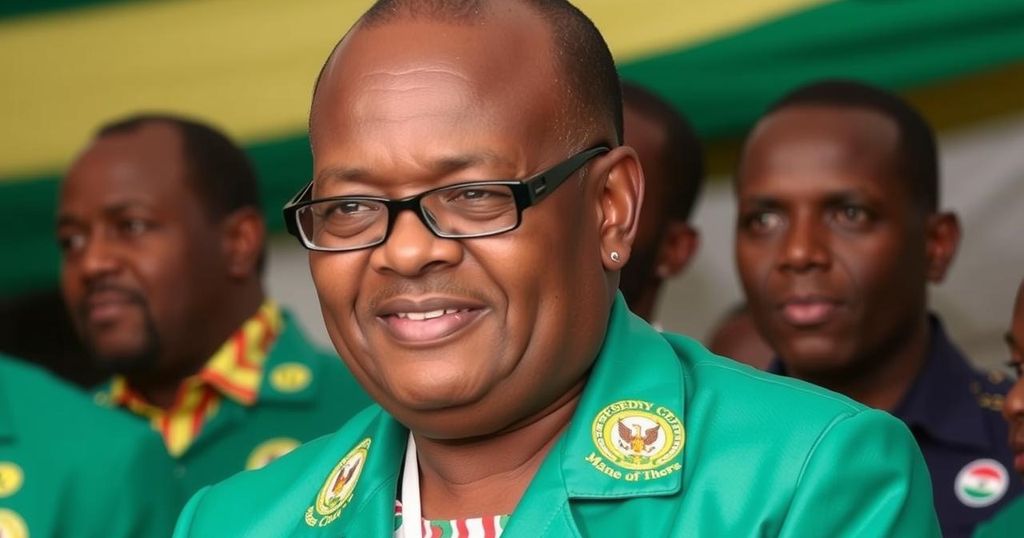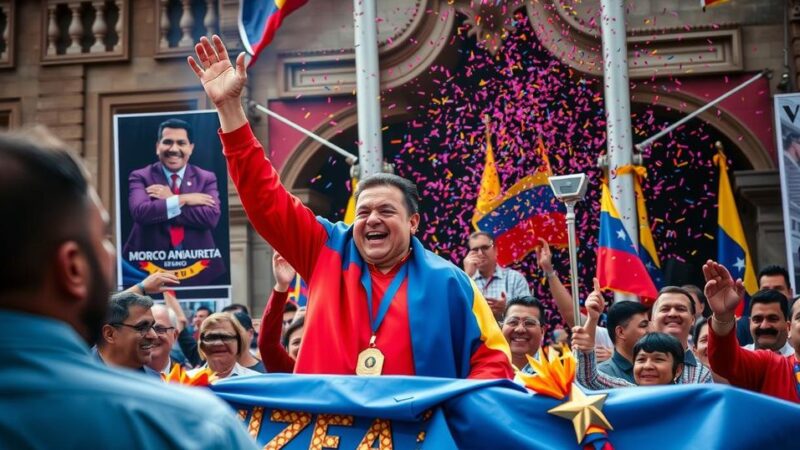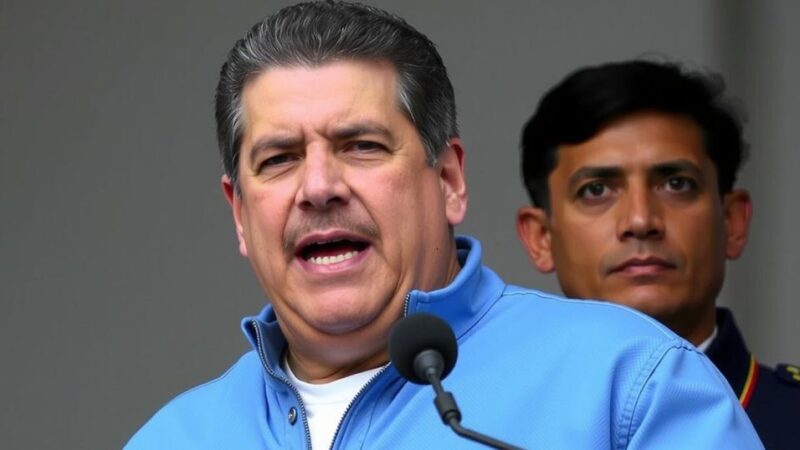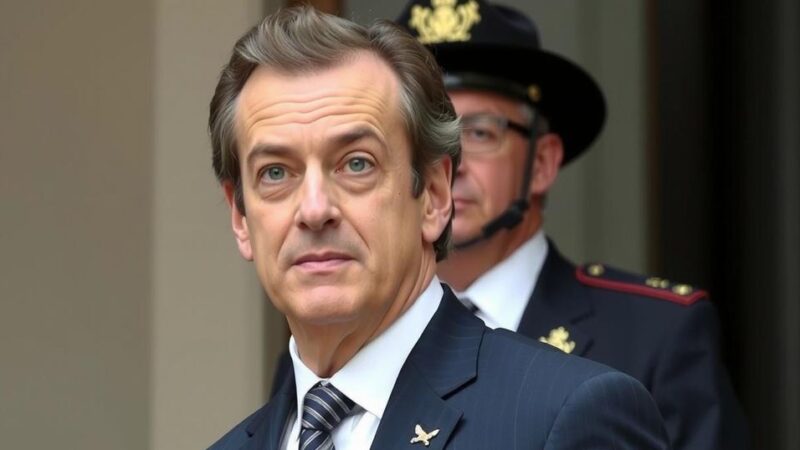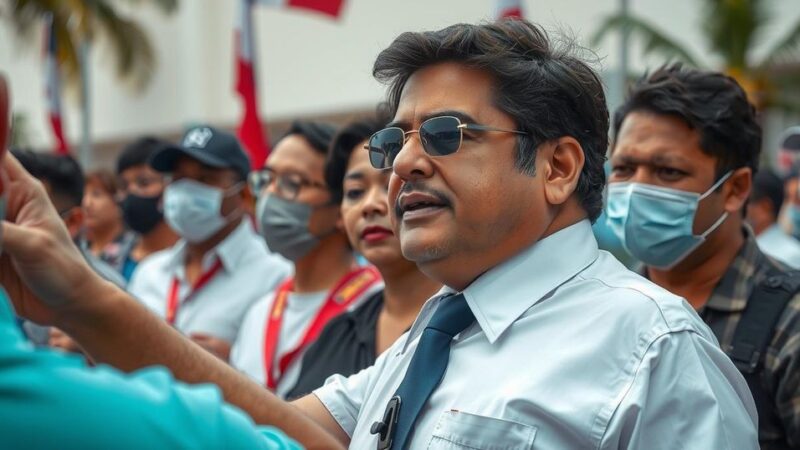Ghana’s ruling party candidate, Vice President Mahamudu Bawumia, conceded defeat in the presidential election to National Democratic Congress candidate John Mahama amid widespread economic discontent. Mahama’s anticipated victory reflects the electorate’s desire for change after challenging economic conditions under the NPP. Celebrations erupted as preliminary results indicated a decisive win for Mahama, straining Bawumia’s efforts to maintain power for the NPP.
In a significant political transition for Ghana, Vice President Mahamudu Bawumia, the ruling New Patriotic Party (NPP) candidate, conceded defeat in the recent presidential election after widespread discontent regarding the state of the economy. The election, held on Saturday, concluded two terms of leadership by the NPP under President Nana Akufo-Addo, which had been characterized by severe economic challenges, including soaring inflation and a recent debt default. During a press conference, Bawumia acknowledged the electorate’s desire for change, stating, “The people of Ghana have spoken, the people have voted for change at this time and we respect it with all humility.” He also reached out to congratulate his opponent, John Mahama, the candidate for the National Democratic Congress (NDC).
Celebrations erupted outside the NDC headquarters in Accra as supporters gathered to commemorate Mahama’s anticipated victory. Mahama, who confirmed the congratulatory call from Bawumia on social media, was reported by NDC spokesperson Sammy Gyamfi to have won approximately 56.3% of the vote compared to Bawumia’s 41.3%. This election followed Ghana’s challenging economic landscape marked by a default on government debt and a currency depreciation that necessitated a $3 billion bailout from the International Monetary Fund.
The recent election saw political agents from both parties closely monitoring the poll, with preliminary counts suggesting Mahama’s decisive win, albeit official results from the electoral commission are expected later this week. Historically, Ghana’s political scene has shown stability with the NPP and NDC alternating power since the country’s return to multiparty politics in 1992. Bawumia’s campaign to secure a third consecutive term for the NPP was met with overwhelming scrutiny about the incumbent government’s economic performance. Despite some signs of economic stabilization, such as decreased inflation rates, the pervasive frustrations among the populace provided Mahama an opportunity for a comeback after two prior unsuccessful presidential attempts.
The political landscape in Ghana has traditionally been shaped by two main parties—the New Patriotic Party (NPP) and the National Democratic Congress (NDC). Since the re-establishment of multiparty democracy in 1992, these parties have alternated power, reflecting a stable democratic system. The current election cycle was significantly influenced by economic issues, with the country grappling with a noteworthy economic crisis and the challenges of inflation, failing currency, and heavy national debt. This context established a backdrop for the election, with the electorate eager for a leadership change. Mahamudu Bawumia, as a candidate, faced the tough task of distancing himself from the less favorable perceptions of the outgoing administration led by President Nana Akufo-Addo. In contrast, former president John Mahama aimed to reclaim leadership after two unsuccessful tries in previous elections, tapping into a public desire for economic improvement and political renewal.
The 2023 presidential election in Ghana marks a pivotal shift in the nation’s political narrative, characterized by Vice President Mahamudu Bawumia’s concession and the National Democratic Congress’s resurgence under John Mahama. The election’s outcome reflects the citizens’ dissatisfaction with the current economic situation and their earnest desire for change. This transition heralds an opportunity for the newly elected leadership to address critical economic challenges while restoring public trust in government institutions. As Ghana embarks on this new political journey, the weight of expectations regarding economic recovery will undoubtedly shape the agenda for Mahama’s administration.
Original Source: www.voanews.com

